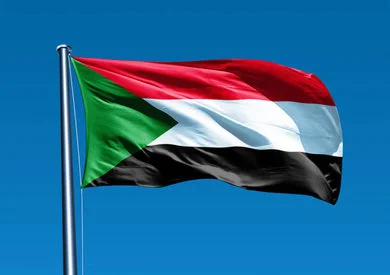The Incoming Government: Economic Demands Amid Political Challenges

By Nazik Shummam – Sudanhorizon
The Sudanese public is anticipating the announcement of a new government in the coming days, expected to be unveiled by Prime Minister Dr. Kamil Idris amid the country’s ongoing political and economic challenges.
Last month, the Chairman of the Transitional Sovereignty Council, General Abdel Fattah al-Burhan, appointed a new Prime Minister after a vacancy that had lasted more than three years, during which caretakers had held the position.
Upon assuming office, Idris dissolved the previous government and assigned undersecretaries and secretaries-general to oversee ministries temporarily until the new government is formed.
Media outlets have reported that Idris intends to reduce the number of ministries from 26 to 16.
However, efforts to form the new government face numerous hurdles, chief among them the ongoing war, which has been ongoing for more than two years, and its associated economic and social consequences. Additionally, complications stemming from the interpretation of agreements signed by the previous government with what are now known as the “peace parties” also pose challenges.
After being sworn in before the Sovereignty Council Chair, Kamil Idris pledged to serve the country and uphold justice, peace, the rule of law, and sustainable development.
He emphasised that Sudan’s national security and the restoration of state authority, achieved by defeating rebel and insurgent militias, are top priorities. Idris added: “We call on countries supporting the rebellion to cease their planning, funding, and cooperation.”
The transitional prime minister also announced that the government’s agenda would focus on comprehensive national recovery and an inclusive Sudanese-Sudanese dialogue, rejecting all forms of regionalism and racism.
He vowed to manage the transitional period and executive apparatus with efficiency and effectiveness, stressing the importance of achieving stability, peace, and security across the country.
With increasing speculation about the list of ministers and officials to be appointed, it’s clear that holding office in the new government will not be easy due to the country’s economic difficulties. These are compounded by ongoing security instability, which casts a negative shadow over economic indicators.
Given the continued depreciation of the Sudanese pound in parallel market trading and May’s inflation rate soaring to 146.30%, economic matters will top the new government’s agenda.
Journalist and economic affairs specialist Khalid Saad said the new prime minister will face serious economic challenges, primarily managing a wartime economy and balancing war expenses with the need to deliver basic services.
Saad noted that the political framework is essential to any economic effort by Idris, particularly in resource mobilisation, management, and protection.
He predicted that electricity would be a key priority, along with marketing agricultural production, both for export and domestic markets. He emphasised the importance of enhancing consumer purchasing power, which is crucial for revitalising various sectors, particularly services.
Saad emphasised that gold exports will likely be the government’s primary revenue source, as taxation requires a revival of the productive sector, which has suffered heavy losses due to the war.
He added that Idris will face numerous complexities, some inherited and others generated by the war, requiring a breakthrough — particularly in the political domain — to implement a comprehensive and consensus-driven economic plan.
Meanwhile, economic expert Walid Daleel argued that what’s needed from Dr Kamهl Idris is a “lean government.”
He explained that maintaining traditional bureaucratic structures will inevitably lead to poor outcomes.
Daleel stressed the need for a lean and agile government capable of rapid and effective responses through major transformations in structure and internal processes and by reinventing relationships with the public, employees, and partners, seizing opportunities to achieve goals.
Speaking to Sudanhorizon, Daleel stated that a lean or agile government is an administrative approach designed to enhance the state’s ability to adapt and respond to rapid changes in its environment, whether economic, social, or technological.
He highlighted the importance of adopting a trial-and-error approach, where ideas and new solutions are constantly tested and evaluated, with lessons learned feeding back into the system.
He urged the new government to prioritise citizens’ needs, delivering services that effectively meet those needs while empowering employees and delegating decision-making, which boosts efficiency and innovation.
Daleel also called for the use of modern technology to streamline processes and provide better services to citizens, including enabling online access to services, thereby saving time and effort.
Finally, he emphasised the importance of effective crisis response with specialised and collaborative teams, alongside improving the quality of healthcare services through system development and training of medical personnel.
Shortlink: https://sudanhorizon.com/?p=6049

